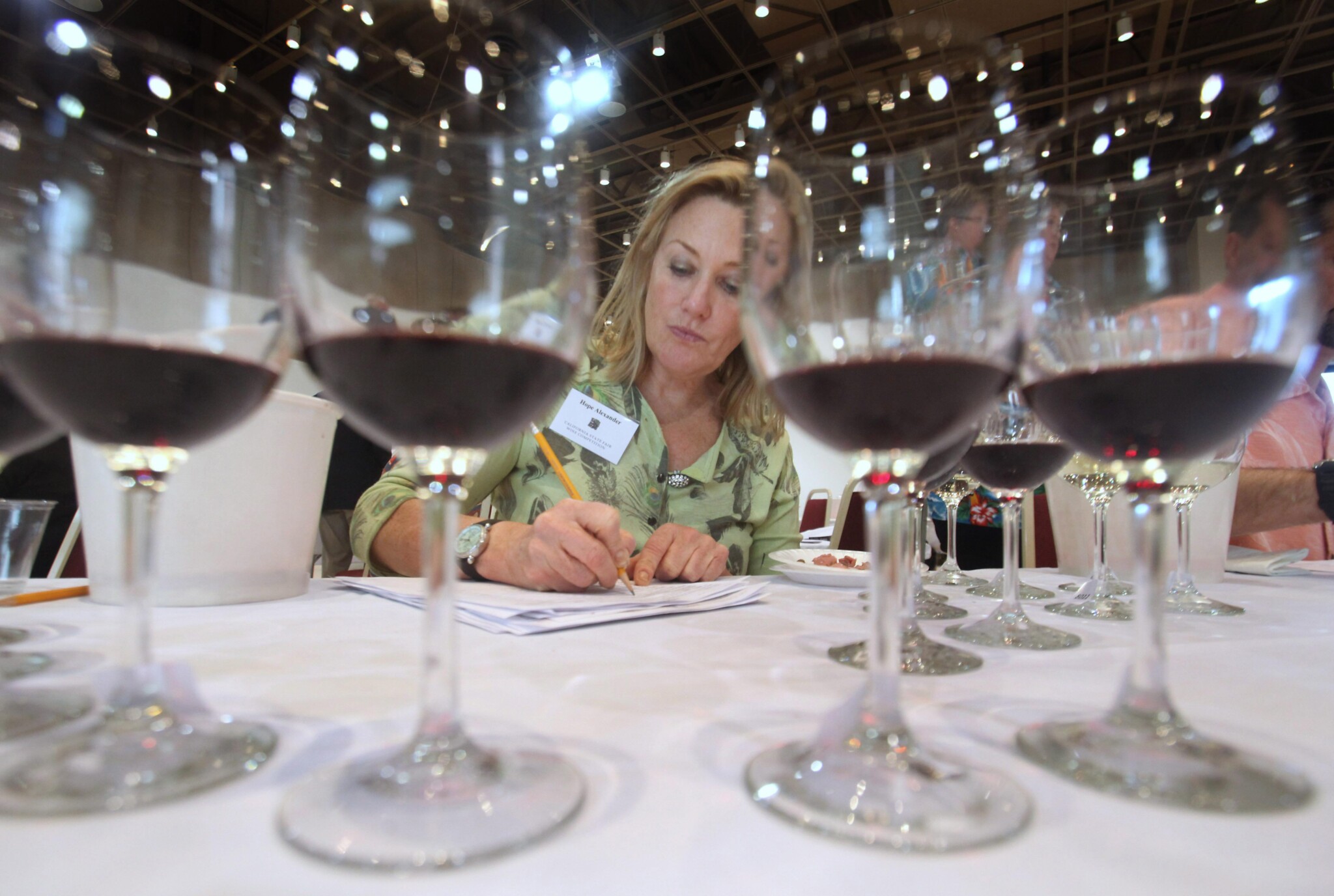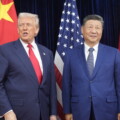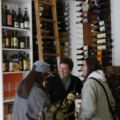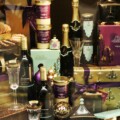Around 30 years ago, when I was beginning to take a serious interest in wine, my girlfriend bought me the new yearly edition of Hugh Johnson’s Pocket Wine Book for Christmas. She got the idea from her father, who lived in the United Kingdom and got one every year. The wine guide was tall and slim, so it could discreetly fit into a gentleman’s jacket pocket if he went out to dine.It could also, of course, fit into a gentlewoman’s pocket or handbag, though I doubt that was contemplated at the time.
Organized by country, the Pocket Wine Book listed the names of producers by country, highlighted good vintage years to look out for, and provided some commentary on the wines they produced. One could slip it out while examining a wine list and impress the sommelier with an informed choice. In reality, I think most owners, like me, used it as a quick reference at home when we were curious about a wine we’d bought or tried and liked.
Johnson published his first Pocket Wine Book in 1977, long before Google, let alone AI, and long before there were approximately 100,000 commercial wine producers in the world. When he launched the series, he was already a published author and recognized wine expert, so inclusion in the book would have meant that a winemaker had at least been recognized by his authority. But the pool of wineries to choose from in 1977 or even 1997 was so much smaller than it is today that the slim volume could more or less cover the field.
According to its Amazon page, the 2025 edition of the Pocket Wine Book, now edited by Margaret Rand, measures 336 pages. That’s a lot of wineries, but the odds are that there are labels at my local retailer or on the lists at my local restaurants that aren’t mentioned in its pages. To find out about those wines, I’ll need to do something I had started doing around the time I received that first Pocket Wine Book: search online.
Wine meets the World Wide Web
Very early in the digital age, wine periodicals realized that the large number of tasting notes and scores they published could very easily be converted into searchable databases to drive traffic to their websites. Then, when social media rose to dominate the online world in the era of ‘Web 2.0‘, old and new sites encouraged their readers to add even more notes and conversations to drive even more traffic.
Soon, the organizers of wine tastings began to accommodate laptops on the table instead of notepads on the knee. There was a mad rush to upload as many wine notes to a given site as possible to lure wino readers searching for a specific wine. Then came Artificial Intelligence (AI) entered the tastings.
Last week, The Hub published an op-ed by Rudyard Griffiths about AI and the news media. I’ve been thinking about it a lot in terms of the wine media. Griffiths points out that AI descriptions are rapidly becoming so accurate that searchers no longer even bother to click through to the original source. This seems bad for whatever passes for big wine media, which publish what are essentially digital versions of the Wine Pocket Book.
These digital reviews are often behind a paywall, which, up until now, has been a decent paid subscriber strategy. But now that AI bots can find enough tasting or review information on the wine to put together their own free review, why would anyone click through and continue to pay?
It gets worse for the owners of the wine review databases. For a long time, there has been a symbiosis between reviewers and wine marketers. Some might call it notorious. Here’s how it works: reviewers give a wine a glowing review (a score of 90 points or more). Wine marketers then publicize the score and review, which in turn boosts the traffic to the reviewing sites. Getting access to free wine also sweetens the deal for reviewers.
Good luck shielding these reviews from AI scraper bots, if they are being publicized by marketers and retailers. If what Griffiths describes is apt to happen to news reports, then it will surely happen to wine tasting notes and wine reviews.
I wonder if AI and its detailed search summaries won’t flip the value of wine communication on its head. For the first 25 years of digital wine content, it was information that drove traffic and revenue. But once that becomes truly ubiquitous, will it be the human storytelling that becomes valuable?
Full disclosure: I publish a Substack newsletter, which is a mix of wine-related content: both storytelling and recommendations for wines available in my home province. I publish a mix of free and paid content. Until now, I had always imagined I would keep the storytelling free and the information about newly released wines at a premium. It may be time to flip it around.
In his piece, Griffiths writes, “[T]he advent of AIs as go-to news aggregators also opens up a whole new set of exciting possibilities for solo journalists and independent news outlets as the industry finally moves on from a long past golden age of journalism and its end-to-end solution for news generation and distribution.” I take comfort in that.
As a wine media consumer, I am much more interested in the storytelling content than ratings and reviews. When I do pay for subscriptions, it’s because I am a fan of a particular writer and their point of view. I am less interested in descriptions of wine than in the stories of the people who make it.
When Hugh Johnson published his first Pocket Wine Book in 1977, readers and drinkers had a lot to be wary of. Before global warming really ramped up, there were truly bad years to avoid, even in the most prestigious regions, and cellar conditions could be equally variable, often not in a good way.
But in the 21st century, most wine is at least made to purpose by people who know what they’re doing. Maybe it’s better to pay to find out how and who’s making it than to determine whether the wine tastes like blackberries or black currants.









